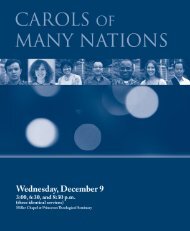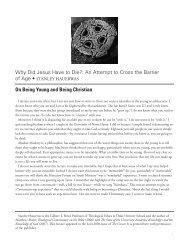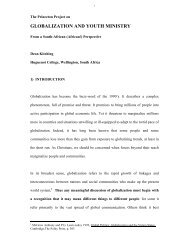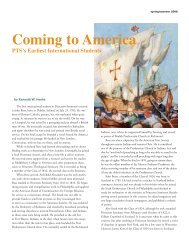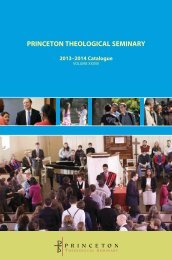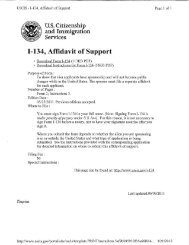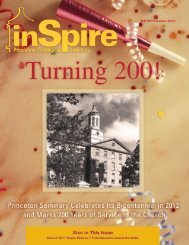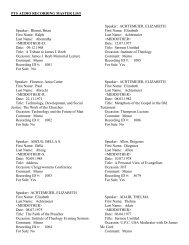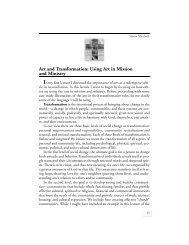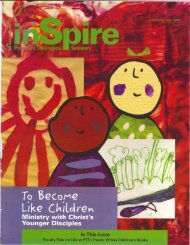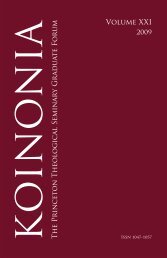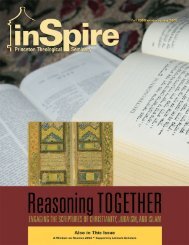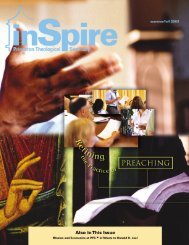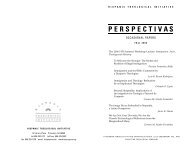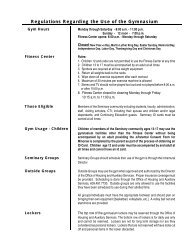PTS Catalogue - Princeton Theological Seminary
PTS Catalogue - Princeton Theological Seminary
PTS Catalogue - Princeton Theological Seminary
You also want an ePaper? Increase the reach of your titles
YUMPU automatically turns print PDFs into web optimized ePapers that Google loves.
Old Testament and New Testament Research Colloquia<br />
As a means to foster collegiality and to promote research, the Department sponsors<br />
research colloquia in both Old Testament and New Testament. Six colloquia<br />
in each subarea occur over the course of the academic year. Participants include<br />
<strong>Seminary</strong> graduate students (required during residency) and faculty as well as<br />
interested visiting scholars and faculty from the local area. Papers are circulated in<br />
writing, usually two weeks in advance of the colloquium’s meeting. Each paper will<br />
be assigned two respondents. Faculty and students share responsibility for presenting<br />
papers and responses. Students in their first year are expected to give one<br />
response to a paper, while students in their second year will give one paper (often<br />
on a topic the student anticipates exploring in the dissertation).<br />
Topic Statement<br />
In consultation with pertinent faculty members, a student will compose a twopage<br />
statement describing the general topic of the dissertation. This statement<br />
is to be submitted to the Chair of the student’s Residency Committee in time for<br />
consideration by the Department in its February meeting of the student’s second<br />
year. These topic statements are provisional and heuristic, serving both to aid in<br />
the student’s preparation of a thesis proposal in the third year and to guide decisions<br />
about the content of the student’s Comprehensive Examinations (especially<br />
Book-and-Block, Review Essay).<br />
Comprehensive Examinations<br />
Students may sit for Comprehensive Examinations upon successful completion<br />
of all residency requirements and the recommendation of their Residency<br />
Committee. There are a total of five Comprehensive Examinations, which normally<br />
are to be completed by the middle of the third year of graduate work. On occasion,<br />
some part or parts of these examinations may be taken earlier. The nature<br />
and form of the Comprehensive Examinations vary, but in each, the student’s<br />
knowledge and competence in a specified area of study is to be evaluated. The five<br />
exams are as follows:<br />
1. Major language competency<br />
Attainment of competency in a student’s major language will be demonstrated as<br />
prescribed in the following:<br />
<br />
exam in New Testament Greek and (ii) in May of the second year, pass an<br />
exam in Septuagint Greek.<br />
<br />
pass an exam in Hebrew prose or satisfactorily complete the Accelerated<br />
Hebrew Reading course and (ii) in May of the second year, pass an exam in<br />
Hebrew poetry.<br />
Faculty responsibility for overseeing these exams falls to the Department’s subcommittee<br />
on language study.<br />
!# 62#"<br />
cat1213



